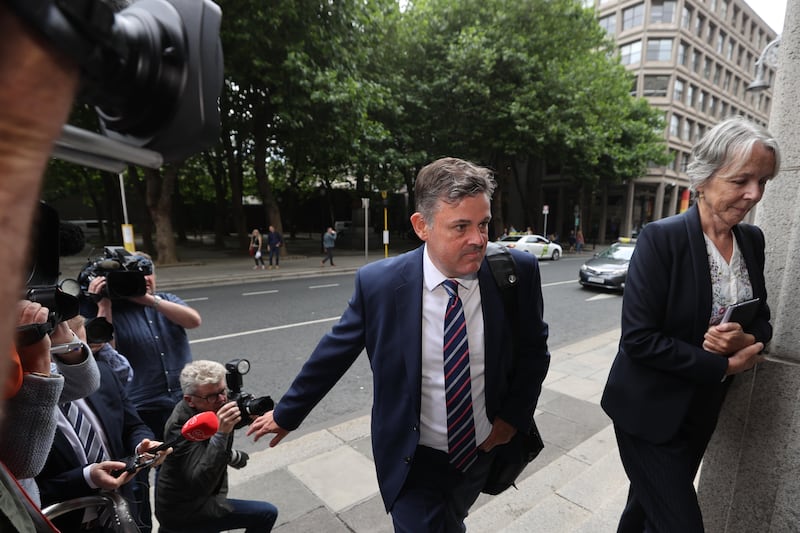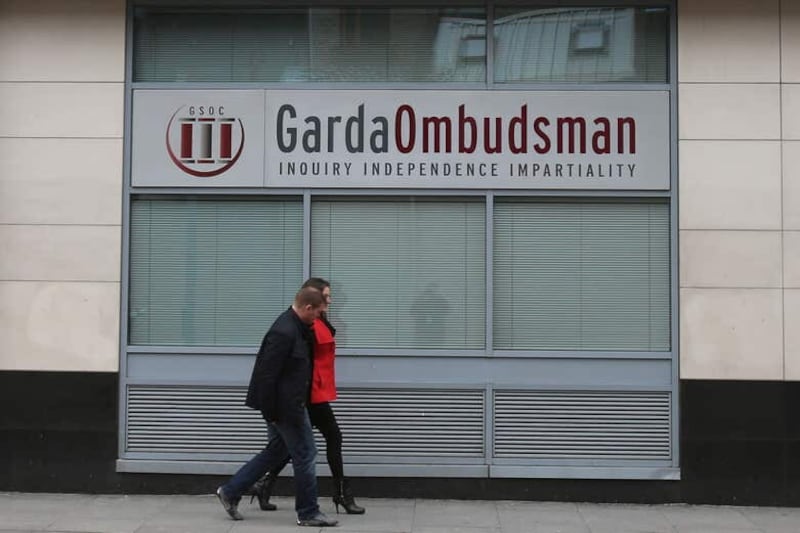The introduction of facial recognition technology and body-worn cameras would require “robust policies” for Gardai to follow and additional resources for the Garda Ombudsman (GSOC), a committee has heard.
The government has been deliberating over proposals to introduce both body-worn cameras for gardai and the use of facial recognition technology to assist with investigations.
A proposal was brought to Cabinet in recent weeks that seeks to address concerns raised by the Green Party.
The three coalition party leaders are due to discuss the proposal; higher education minister Simon Harris has suggested that there was “no reason why this can’t be decided within weeks”.
When asked about the proposals during an appearance before the Oireachtas committee to discuss the Garda Ombudsman’s annual report, Commissioner Hugh Hume said that body-worn cameras “may be useful” in helping them decide what happened at an incident.
“But no technology is infallible, and the technology can be used for both good and bad,” he said.
“From a GSOC point of view, any introduction of technology for us must have robust policies, robust procedures for the protection of data and protection of images to ensure it’s not shared disproportionately.”
He said that body-worn cameras would result in “significant” more work for the Garda Ombudsman because each of the 3,000 complaints it receives annually could have a body-worn video attached to it.
“…We would have to receive, manage, store, keep safe, review and that could be a huge additional resource-intensive (work), both technical and human.”
While warning that it was “a matter for the Oireachtas to decide”, he said that “robust procedures” were needed to promote a culture of respect around the new technology.
“Whatever is brought in needs to be accompanied by proper robust procedures that we can check and others can check them to ensure that there’s no misconduct going on.
“The wider issue for us is around culture and practice within the Garda Siochana rather than the technology because any technology can be abused. And it’s really important that it’s treated with respect.”
In his opening statement, GSOC chair Mr Justice Rory MacCabe said that GSOC already needed to at least double their workforce, which included “a considerable increase in our complement of investigative staff”.
The committee heard that each GSOC investigator had around 40 to 50 cases two years ago, and that this has reduced to around 25 to 30 cases each, which was still “way in excess” of the 10 cases each recommended by Grant Thornton.
Director of operations and investigations Peter Whelan said that the median length of time for a criminal investigation is 366 days.
He said that the majority of files are open for up to three years, but some files open for “up to 15 years”.
These delays can be caused by the a lack of engagement from people involved, waiting for the outcome of a court case or inquest, or a lack of resources, he said.
“At any one time in GSOC we might have between 900 and 1,200 investigations ongoing at different stages of the investigative process. At the moment, we’ve 30 investigators and 10 assistant investigators, so that’s 40,” he said.
“If we’ve a minimum of 900 investigations and we want each person to carry 10 cases, we’re talking figures maybe of 90, so that leaves the figure of 40 a long way short of where we need to be.”
Mr Justice McCabe said “I think everybody involved is frustrated” with delays in GSOC investigations.
“The complainants can be frustrated, the members who are the subject matter of the investigation can be frustrated and we can be frustrated seeking timely cooperation from people involved in the investigation.
“So it’s a general frustration. I’m sure members of the public are frustrated when they regularly turn on the radio or look at the TV and hear complaints from people often justified about the delays that are there.”
Mr Hume welcomed the “increased independence” provided by the Policing, Security and Community Safety Bill, but raised concerns around its powers to search Garda stations.
“The new bill places a triple lock on searches of Garda stations, and some of that we advocate for – we believe there should be judicial oversight of our searches of Garda stations.
But he said it was “a hindrance to our investigative independence” that the bill requires the Garda Commissioner to allow for the search of Garda stations.
“Now in practice, a lot of times we will inform members of An Garda Siochana so that they can facilitate that search, but that is an operational decision to be made by the investigators and shouldn’t be subjected to Garda permission to search Garda stations.”
He also raised concerns that the organisation’s annual report is only laid before the Houses of the Oireachtas with the approval of the minister for justice.






